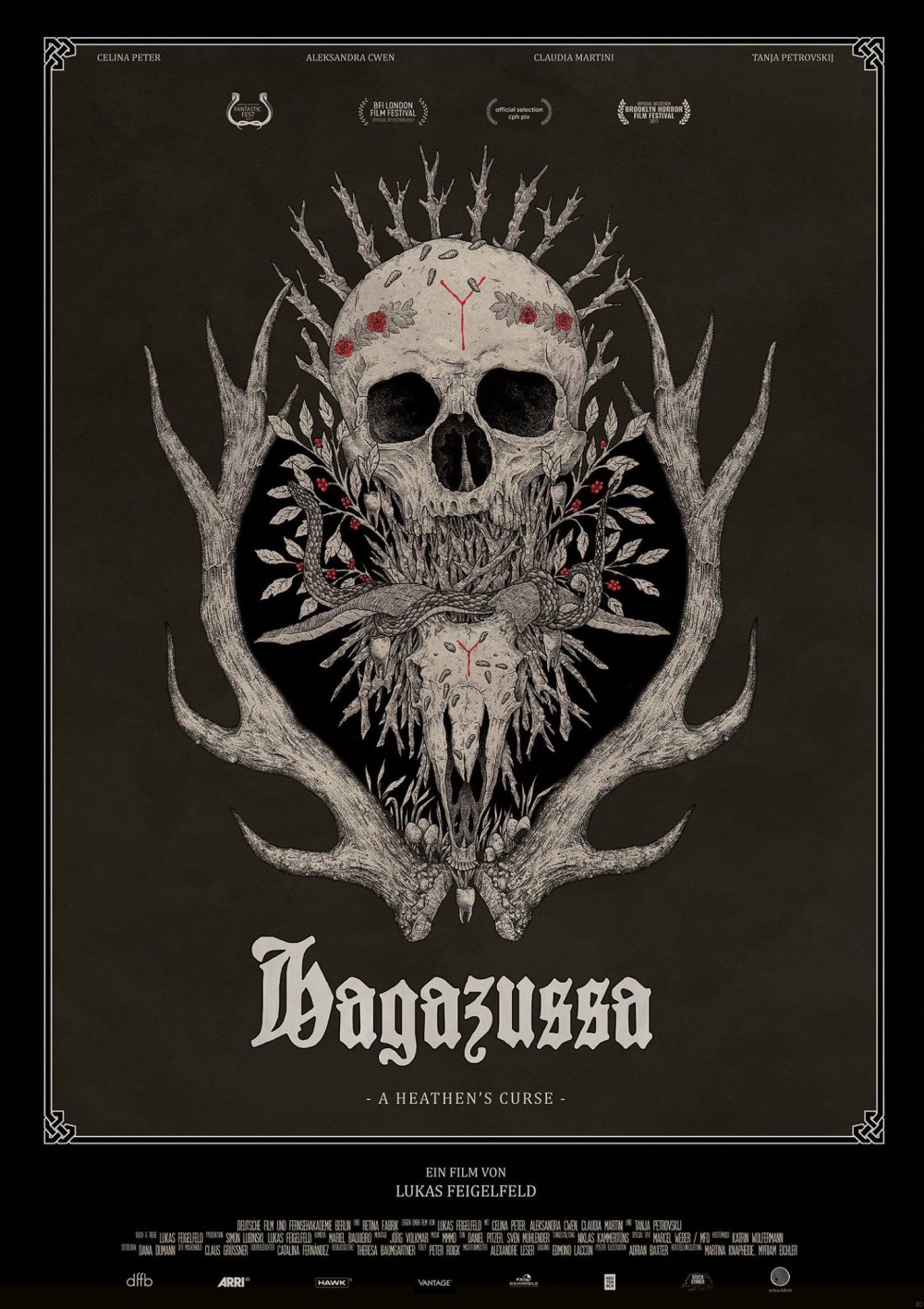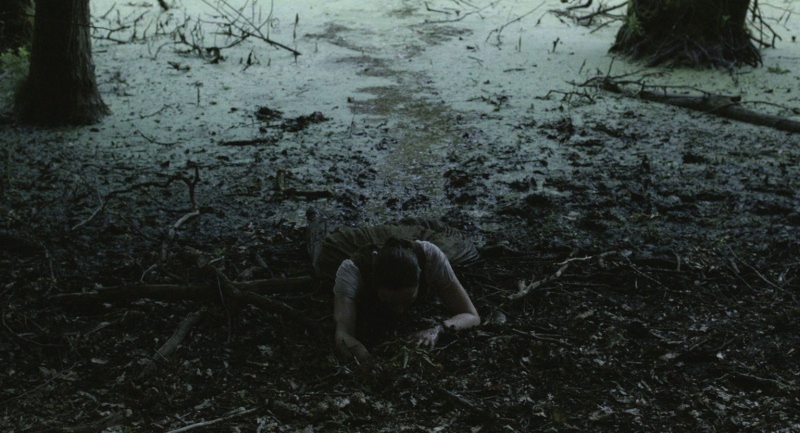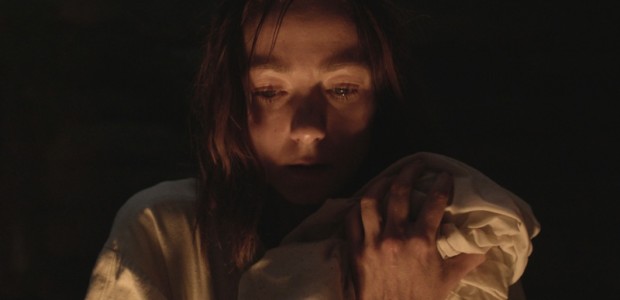The price of oppression and isolation can be a hefty one. When outsiders are deemed dangerous, and vile acts are perpetrated in the name of righteousness, there begins the seeds of violent retribution. These personal transgressions are at the heart of director Lukas Feigelfeld’s debut feature HAGAZUSSA. An exploration of the costs of revenge—coupled with an intense journey into a heart of darkness— marks an assured first film that is beautiful to watch and enchanting in its own sinister ways.
Broken into four parts (SHADOWS, HORN, BLOOD, and FIRE), the movie takes place in Germany during what is probably the 17th or early 18th century. It centers on a woman named Albrun, who the audience first meets as a child taking care of her diseased mother. Albrun grows into an unmarried mother who tends to her goats and keeps to herself on the outskirts of her rural community. As she begins interacting with neighbors and priests, with deep insinuations that this outsider is a practitioner of the dark arts, her life begins to spiral into unexpected and malevolent directions downward.
The film most people will compare HAGAZUSSA to is Robert Eggers’ THE WITCH (or THE VVITCH to some) due to its time period, its subject matter of witchcraft, and its preponderance of goats in particularly important plots. While there are many similarities between the two, including both being lushly shot first time features for their respective directors, these are mostly surface level attributes. The fact is that HAGAZUSSA is its own entity, a strange and mesmerizing tale that beautifully enfolds with its own dark poetry. But for those that need a frame of reference, think of HAGAZUSSA as THE WITCH meets STARRY EYES by way of VALHALLA RISING. Which is to say a colonial times tale of witchcraft that shows the real price of dealing with the devil that has incredible imagery based on the impressive natural vistas of Austria and the psychedelic imagery of Albrun’s mind.

HAGAZUSSA goes to weird places and transgresses all manner of good taste and moral decorum, but it never feels like it’s trying to be shocking. Instead these dives into immorality are natural progressions of characters, while still remaining completely shocking turn of events. There are scenes and shots (captured by Director of Photography Mariel Baqueiro) that will haunt viewers for many days after seeing the movie. There are actions undertaken by the protagonist that are seemingly insane, definitely grotesque, and ultimately the result of her dalliance with the occult. What Feigelfeld doesn’t explore, wisely, is whether or not these hideous behaviors are merely the result of her expulsion from her community or if they were always a part of her life.
The film is brilliantly shot and wonderfully placed, ratcheting up the crazy with each scene and always instilling in audiences a dread of the forest and what can lie in the shadows. Feigelfeld invites viewers into Albrun’s fractured psyche and it is a wild ride to take while enjoying some truly stunning imagery and fantastic performances (most notably the anchor of the film, Aleksandra Cwen as adult Albrun). It also has a wonderfully inventive score by MMMD that feels both anachronistic but also incredibly fitting with its dark overtures constantly building and haunting every frame,

If there are issues with HAGAZUSSA, they are minor: at times it can feel overlong and like a few of the “normalizing” scenes of Albrun could be trimmed without losing anything in pacing or narrative impact. Also, while it is steeped in traditional occult and Christian mysticism to great effect, that also leads to some very obvious visual metaphors like apples and snakes that feel too “on the nose” for the rest of this film’s inspired catalogue of optical delusions.

HAGAZUSSA is not for everyone—there are no real jump scares, no real F/X, and the film is comprised of a slow tense build up of maddening moments that go to some uncomfortable places. But for those willing to invest time and effort in order to give themselves over to Feigelfeld’s siren’s song, they will be rewarded with a unique experience that transcends boundaries while telling a tale that is at once singular and all too familiar. When pushed to the edges of society, when cast out from those they would call a community—what choice do others have but to push back? It helps if they happen to have the devil as an acquaintance…but they may not be prepared for the cost of such a relationship.
— ROB DEAN @neuroticmonkey
Tags: Aleksandra Cwen, Fantastic Fest 2017, Hagazussa, Lukas Feigefeld, Starry Eyes, The Witch, Valhalla Rising


No Comments